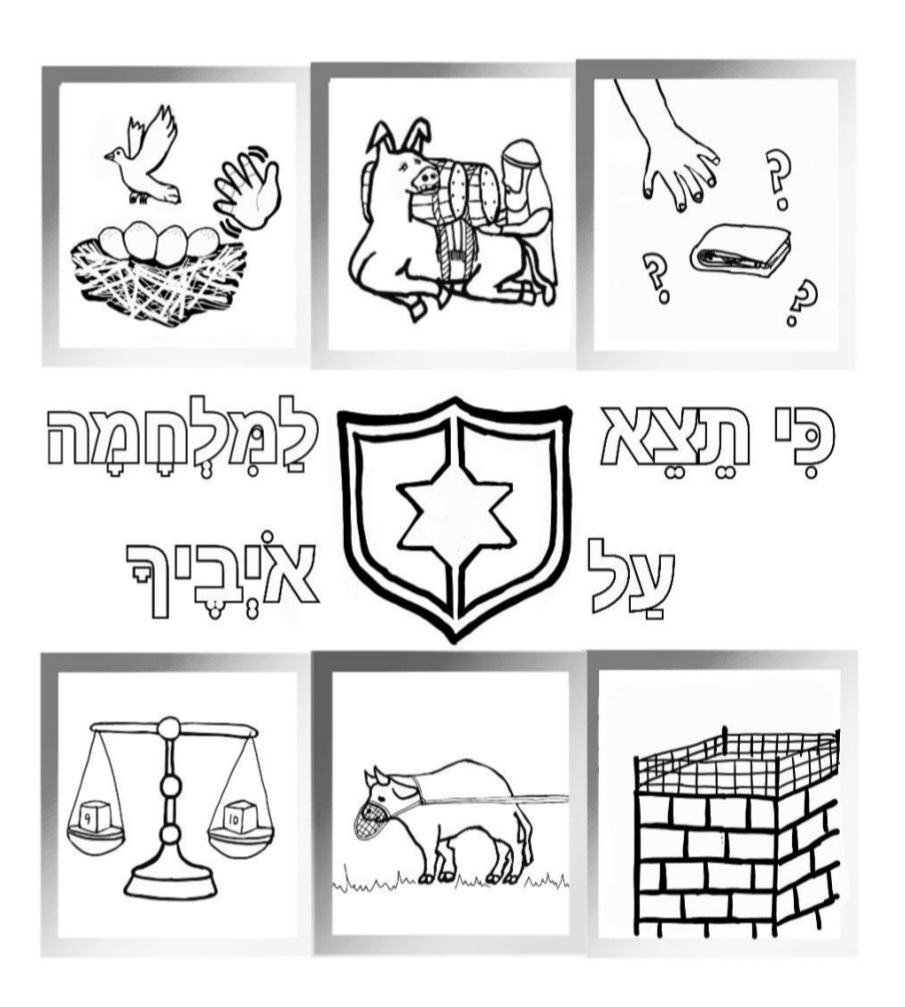The Shabbos Table – Ki Seitzei: R’ Y. Sacks Shlita: “The Exception that Proves the Rule”
This D’var Torah should be a Zechus L’Ilui Nishmas my mother Chaya Rochel Bas Dovid Tzvi (Hareini Kaparas Mishkavah), my sister Kayla Rus Bas Bunim Tuvia A”H, my maternal grandfather Dovid Tzvi Ben Yosef Yochanan A”H, my maternal grandfather Dovid Tzvi Ben Yosef Yochanan A”H, my paternal grandfather Moshe Ben Yosef A”H, my paternal grandmother Channah Freidel Bas Avraham A”H, my uncle Reuven Nachum Ben Moshe & my great aunt Rivkah Sorah Bas Zev Yehuda HaKohein,
It should also be in Zechus L’Refuah Shileimah for:
-My father Bunim Tuvia Ben Channa Freidel
-My grandmother Shulamis Bas Etta
-MY BROTHER: MENACHEM MENDEL SHLOMO BEN CHAYA ROCHEL
-Mordechai Shlomo Ben Sarah Tili
-Noam Shmuel Ben Simcha
_R’ Simcha Yitzchak Ben Mirela Yudka
-Chaya Rochel Ettel Bas Shulamis
-It should also be a Z’chus for an Aliyah of the holy Neshamos of HaRav HaGa’on V’Sar HaTorah Shmaryahu Yosef Chaim Ben HaRav Yaakov Yisrael Kanievsky A”H, Dovid Avraham Ben Chiya Kehas—R’ Dovid Winiarz ZT”L, Miriam Liba Bas Aharon—Rebbetzin Weiss A”H, as well as the Neshamos of those whose lives were taken by terrorists (Hashem Yikom Damam), COVID-19, and other tragedies.
-It should also be a Z’chus for success for Tzaha”l as well as the rest of Am Yisrael, in Eretz Yisrael and in the Galus.
בס”ד
Be”H, I will be translating / transcribing / paraphrasing Divrei Torah of my Rebbi, HaGaon R’ Yonason Avner Sacks Shlita. (Any inaccuracies, whether added, misrepresented, or due to omission and/or points lost in translation or context should be attributed to me alone. * = My addition.)
Ki Seitzei
“The Exception that Proves the Rule”
Based on:
“Parshas Ki Seitzei – Milchemes Mitzvah and Eishes Yefas To’ar” (2017, 5777)
https://www.landertorah.com/shiur/6100/parshas-ki-seitzei—milchemes-mitzvah-and-eishes-yifas-toar
One of the Most Important Parshiyos
The Parsha of Yefas To’ar is probably one of the most important Parshiyos that informs Avodas Hashem. It’s not that Yefas To’ar comes up so often; nonetheless, the Mussar Haskil of Yefas To’ar is one of the most relevant messages for the day in and and day out Avodas Hashem.
“I’m Incapable”
One of the significant challenges that people think they face when it comes to Avodas Hashem is that they feel, maybe sincerely, that what they’re being asked to do is beyond their reach.
“I understand, the Torah says all of these things, but you know what? I’m incapable. That which the Torah is demanding, maybe for him, but not for me. The Ran says in Nedarim, Daf Ches, that you have to learn Kol HaTorah Kulah? Maybe he has to learn Kol HaTorah Kulah.”
No, you have to learn Kol HaTorah Kulah! How is that possible? That’s the time people all of sudden adopt the Midas Ha’Anavah, when they’re asked to do something.
By Definition, it is Within Reach
The truth is that, by definition, if the Torah obligates you, it is accessible. If the Torah expects, it is within reach. After all, how could the Torah demand something that is beyond your reach?
Yefas To’ar – An Exceptional Model of Accommodation
The greatest Ra’ayah Muchachas (indisputable proof) that this is true is Yefas To’ar. Because the case of Yefas To’ar takes place in a dire situation, B’Sha’as Milchamah (time of war), when a person’s guard is down, when emotions are running high, and where the climate of Milchamah is beyond… (today, we read about all of the syndromes that people suffer years after returning from battle)
The Torah recognized that the battlefield is not at all an environment that is conducive for such a trial, and so, what does the Torah do? The Torah tells us that when you are in a situation where the expectation is unrealistic, it accommodates! It creates a Heter (permit)! “Lo Dibrah Torah Ela K’Negged Yeitzer HaRa” (“The Torah spoke corresponding to none other than the Evil Inclination,” Tanchuma, Devarim 21:11). The Torah gives Yefas To’ar as a model of accommodation. The Torah “lowers the bar.”
The Exception… that Proves the Rule
But, Yefas To’ar is the exception that proves the rule. That is the Mussar Haskil. Whenever the expectation is in place and there is no Heter that is Mefurash B’Kra (explicit in Scripture) to tell us “not here,” then that expectation is a realistic one and you’re expected to overcome.
Without such a model, perhaps one could wrongly rationalize violations of Halachah on his own. But, in fact, there are specific cases where Halachah accommodates. Pikuach Nefesh (preservation of life) is Docheh Issurim (overriding of prohibitions). Sometimes, “Oness Rachmana Patreih” (the Torah exempts in the case of unavoidable mishap). But, if there is no Halachic accommodation, then you’re capable and obligated.
Ameilus
If you struggle, that’s okay. That’s Ameilus (toil). HaKadosh Baruch Hu created you that way. “L’Kach Notzarta” (“for that purpose you were formed”). You were created in order to persevere and overcome. In life, you position yourself, set Halachic goals, and work hard.
May we all be Zocheh to toil in Avodas Hashem, emerge successful, and Hashem should accept our toil, and award our efforts handsomely with Geulah in the times of Moshiach, Bimheirah BiYomeinu! Have a wonderful Shabbos and a Gutten Chodesh Elul!

